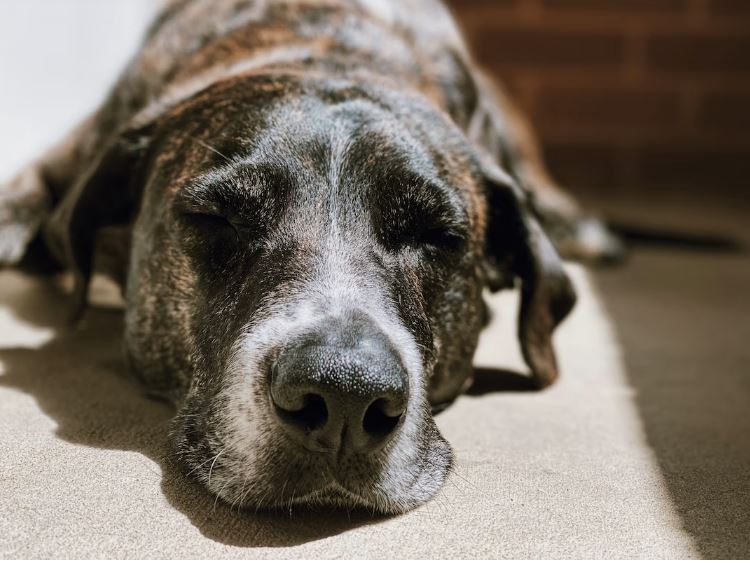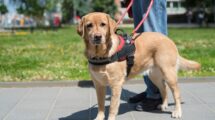The natural progression of time means that all dogs will age into senior status. Important information to remember is that aging canines have specific needs that differ from those of younger dogs. A dog’s mobility decreases, its senses of hearing and sight deteriorate, and it becomes more susceptible to a wide range of illnesses as it ages. Old age isn’t necessarily a death sentence, and canines can enjoy a long, fulfilling life well into their senior years. Because not all pups reach senior status simultaneously, keeping your pet healthy is crucial by acting on the first signs of aging.

- Maintenance Visits To The Vet
When caring for an elderly pet, it’s crucial to take them to the vet regularly. Your dog’s immune system weakens with age, increasing its susceptibility to various diseases. That’s why it’s important to bring your senior dog to the dedicated veterinarian team for checkups at least once every six months. Your veterinarian will be able to determine early on if there is a problem and treat your dog accordingly. A dog’s anxiety at the vet’s office can be alleviated by using an online vet service accessed from the comfort of home.
- Allow For Any Reasonable Modifications
Arthritis and other bone and joint issues make it difficult for older dogs to move around. And at night, a blind dog will have trouble hopping up on the couch or bed. Your dog can benefit from a comfy orthopedic bed that doesn’t require any jumping or climbing in these situations. Also, it’s not easy for a dog to make the ascent and descent of the stairs, so it’s best to keep him off them.
- Healthy Eating Habits And Proper Medication
Your dog’s health, even as they get older, is greatly influenced by the food they eat. Because they no longer have the same amount of energy as they once did, older dogs are more likely to become overweight. The best way to ensure your senior dog does not gain weight is to feed them a diet created specifically for them. These will supplement your dog’s nutritional needs because they are low in fat and have fewer calories. It doesn’t matter how old your dog is. It would help if you always protected the dog from fleas, ticks, lice, and worms. Therefore, you should proceed with the correct treatments as before. The standard recommendation is every three years, but you should always check with your veterinarian to find their recommendations for your dog.
- Keep Your Teeth And Gums In Good Shape
Most adult dogs are not given the proper dental care, so it is common to see seniors with a few missing teeth. As with any aspect of personal hygiene, dental care should be practiced consistently from an early age. Keep your dog’s teeth in good shape by brushing them daily, and if your dog resists, reward good behavior with dental treats. Additionally, it would be best to take your dog to the vet once a year to have their teeth professionally cleaned.
- Exercising Regularly
A dog’s ideal weight can be maintained with the help of regular exercise, which also has other health benefits. Your veterinarian will be able to advise you on an appropriate exercise plan for your dog, taking into account their current health status and any physical restrictions. Be patient, and if your dog can run, begin with slow walks and gradually increase the distance and speed. While your dog may have been able to run for half an hour when they were younger, they may not be able to maintain that pace as they age.
- Maintaining A Regular Grooming Routine
When your dog ages, its skin and fur can lose their luster and become dry and brittle. Dry, flaky, irritated skin is a common problem among the elderly and can worsen if proper care is not taken. You’ll need to give your dog frequent washing, brushings, and timely trims to prevent mats and tangles. Gentle shampoos that soothe and repair damaged skin and fur are also encouraged.

Aging is natural, but it can be heartbreaking to see your dog go through the various decline stages of old age. It’s best to take things as they come and enjoy every moment you have with your dog. The absence of the owner’s physical presence can cause severe fear in a senior dog. As much time as possible should be devoted to your dog. Busy dog owners can use a pet camera to check in on their furry kids whenever it’s convenient and even talk to them to help reduce separation anxiety. Your dog’s emotional and mental well-being depends on you, even if they can’t see or hear you very well.






